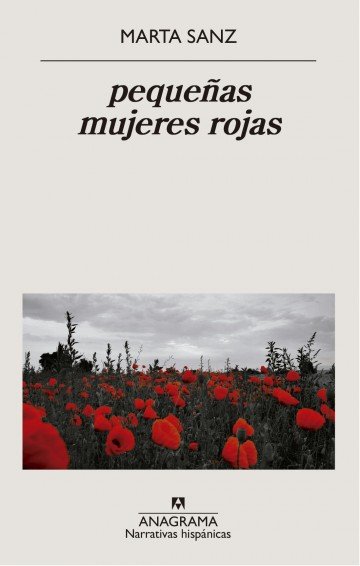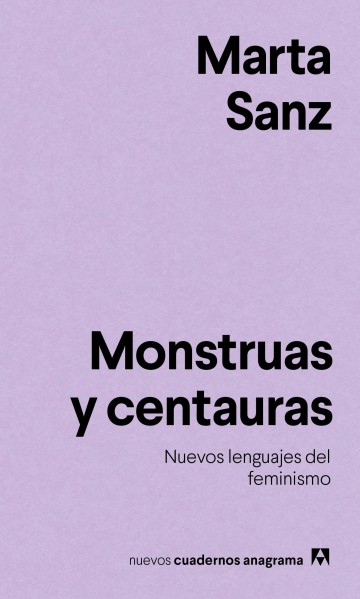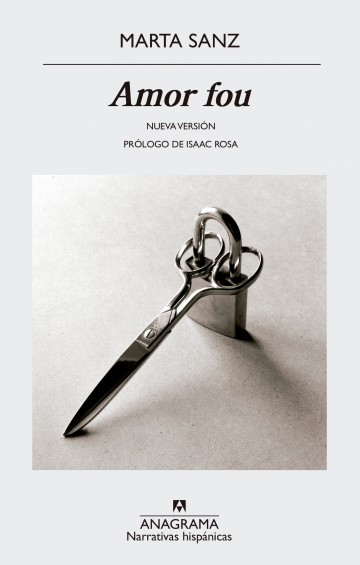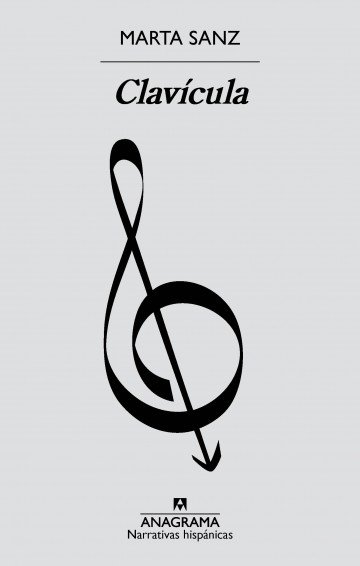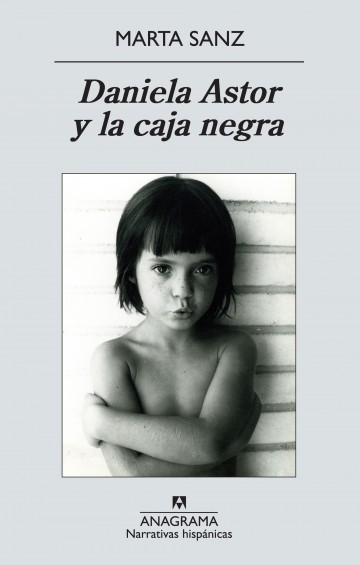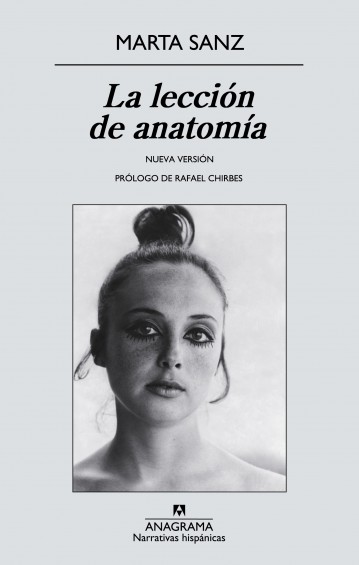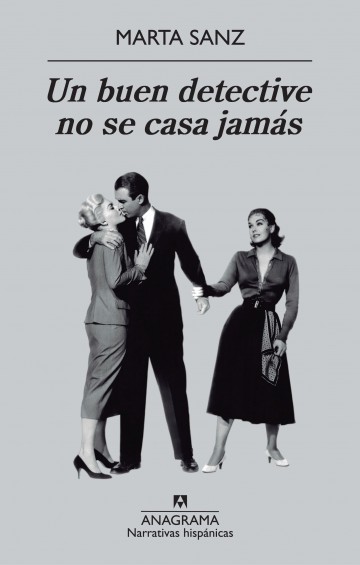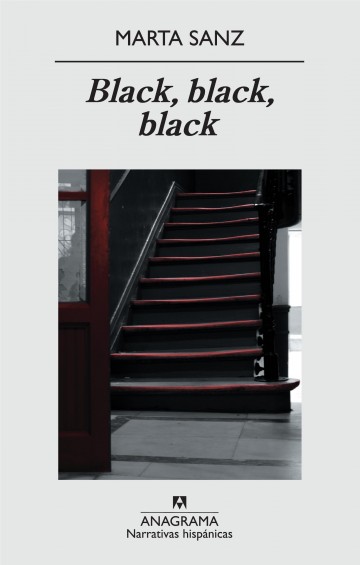| PAGES | 240 |
| SERIES | Narrativas hispánicas |
| PUBLICATION | 18/11/2015 |
El Diario Vasco
Pérgola
Canarias 7
Abc
Translation sample in English
Público (blog El Mundo es un volcán)
El Español, entrevista
Tinta libre
El Imparcial
Babelia, El País (entrevista)
La Razón
Diario de Ávila
El Periódico de Catalunya
El Correo de Andalucía
Babelia, El País
la Cueva del Erizo
El Mundo
Canarias 7 Entrevista
Qué Leer
Diario de Jerez
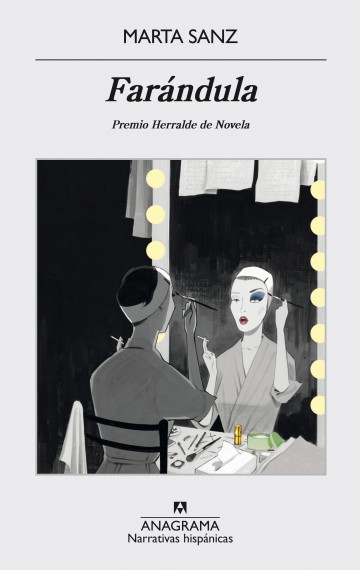
SERIES:Narrativas hispánicas
2015 BEST FICTION BOOK IN SPANISH FOR BEBELIA - EL PAÍS
2015 BEST FICTION BOOK IN SPANISH FOR EL CULTURAL - EL MUNDO
AMONG THE 10 BEST BOOKS OF 2015 IN SPANISH FOR ABC AND EL PERIÓDICO, AMONG OTHER NEWSPAPERS AND MAGAZINES
The stage play of All About Eve, by a famous director brings together a series of characters from the Madrid theatre scene for a few weeks in which their real lives inevitably mix with those of their fictional alter egos. Valeria Falcón plays the part of Margo. She comes from a family of well-known actors and has had a decent career but never made it to the big time and now feels that her career is on a downward spiral.
Every Thursday Valeria visits Ana Urrutia, a former golden star of the stage, who now suffers from Diogenes Syndrome and who lives abandoned in an apartment near Madrid´s Plaza del Sol since taking the decision to disappear from the public eye like Garbo. She is also close to Daniel Valls, a Spanish actor who has made films in Hollywood, has won the Copa Volpi in Venice and who now lives in Paris married to the bourgeoise Charlotte Saint Clair, and who is now in the eye of a media storm after having signed a manifesto against the government´s social policy, perhaps because of his guilty conscience for living a life that has taken him far away from his ideals. And finally the actress who competes with Valeria is the young Natalia de Miguel, in the role of Eve, who decides to combine her appearances in a reality show with her starring role in this cult play.
A story about the fear of losing your place, about generational change and aging. About what it means to be reactionary today, the disparagement of culture and the possibility of art to change reality and the art of writing as an act of malice. About charity as an evil and benefit balls as a reproductive cycle of injustice. About Angelina Jolie. About theatre´s mise en abyme and cinema about cinema. About the plural, the singular and the usefulness of literature. Marta Sanz is unlike any other writer in Spain. She uses laughter as a diagnostic tool. A cheeky, fun, sad, sharp and vital text.
«Her sharp style (sprinkled with flashes of brilliance), her unusual ability to portray situations and to penetrate the psychology of her characters and her fine ear for capturing spoken language with a surprising vivacity convert her writing into a joyful depiction of life rather than a gloomy or sombre handling dead things» (Rafael Chirbes).
«Marta Sanz’s latest novel is corrosive from beginning to end. A book that takes the form of a breathless and very necessary literary carrousel» (José Carlos Mainer, Babelia, El País).
«Marta Sanz has found the best way to write political fiction: by embodying language. Farándula revolutionizes her literary output to such an extent that there is no other option than to remember the work of the greats. One thinks of Valle-Inclán, for example, who, above all other considerations, imposes a language that is eloquence itself. She speaks directly to you... Farándula is revolutionary because of the way it plays with literary language and literal reality» (J. M. Pozuelo Yvancos, ABC).
«Farándula is a novel that will leave no reader indifferent because this lucid and sharp portrait of life today by Marta Sanz goes beyond the merely entertaining. The reader who picks up this book will find high-quality literature, a voice that is dissident and avoids fashions and a book which allows us to contemplate the cultural and social world that surrounds us from a privileged perspective» (Javier Pinto, Qué Leer).
«Fantastic Farándula… What begins as a delightful farce ends up becoming something truly devastating, while managing to maintain the conviction that the narrator has a responsibility to the reader … [Marta Sanz] confirms her status on the national literary scene with this book about an art form that no one cares about but which still manages to produce, even as it is declining, sufficient reasons to throw roses upon the stage» (Nadal Suau, El Cultural, El Mundo).
« Farándula by Marta Sanz has a lot in it to win over lovers of good literature, of theatre and those who are simply curious to try and guess who the real people are hiding behind the characters» (Benjamín Prado, TVE, A la carta).
«[Marta Sanz] confirms her excellence in this novel with an ensemble cast about the world of theatre and the many-sided actors who people it. In Farándula, written with prodigious prose from the start, with its kaleidoscopic vision of the Puerta del Sol in Madrid and where the irony, sarcasm, and humour are devastating, there is a sadness or even a pity for her characters; just as in the work of great writers like Pérez Galdós, who followed the path first trod by Cervantes» (Carmen R. Santos, El Imparcial).
«Whoever insists that the novel is dead as a literary form should quickly pick up a book by Marta Sanz… a fictional space defined by creative irony, the originality of deadly arguments and grotesque characters as well as an unshakable social criticism delivered with humorous lucidity» (Jesús Ferrer, La Razón).
«A literary effort that is original and very different from the usual novels produced in Spain today… a rich, complex and intelligent piece of work. […] a lively language, impetuous, sharp, full of subtlties and corners, which joins the best Spanish tradition from Cervantes and Valle-Inclán, to Quevedo and Cela. And no, that’s not an exaggeration. Sanz is destined to be one of the greats» (Sara Mesa, Estado Crítico)
«The narrative voice of Marta Sanz is intense, original and brave. She produces just enough mischief to keep the voracious reader hooked, but has the ability to overwhelm us with sensations and emotions that oblige us to pause and recognize ourselves in her words, which avoid the commonplace without ever skimping on the lewd» (Carmen Delia Aranda, Canarias 7).
| PAGES | 240 |
| SERIES | Narrativas hispánicas |
| PUBLICATION | 18/11/2015 |
El Diario Vasco
Pérgola
Canarias 7
Abc
Translation sample in English
Público (blog El Mundo es un volcán)
El Español, entrevista
Tinta libre
El Imparcial
Babelia, El País (entrevista)
La Razón
Diario de Ávila
El Periódico de Catalunya
El Correo de Andalucía
Babelia, El País
la Cueva del Erizo
El Mundo
Canarias 7 Entrevista
Qué Leer
Diario de Jerez
TRANSLATION RIGHTS SALES
- Italy (Feltrinelli)
- UK & USA (Hispabooks)


Marta Sanz has a PHD in Spanish Philology. She has published the novels El frío, Lenguas muertas, Los mejores tiempos (Premio Ojo Crítico 2001), Animales domésticos, Susana y los viejos (runner-up for the Nadal Prize in 2006), Lección de anatomía (2008), and in Anagrama, Black, Black, Black, Un buen detective no se casa jamás, Daniela Astor y la caja negra and Farándula (Herralde Novel Prize 2015). She has contributed various short stories to collections and has published El canon de la normalidad, a selection of her own stories. In 2007, she published Metalingüísticos y sentimentales, an anthology of contemporary Spanish poetry and, the same year, she received the Premio Vargas Llosa NH Story Award. She is also the author of the poetry collections Perra mentirosa and Hardcore, both in 2010. She frequently contributes to the Babelia cultural supplement of the El País newspaper.



